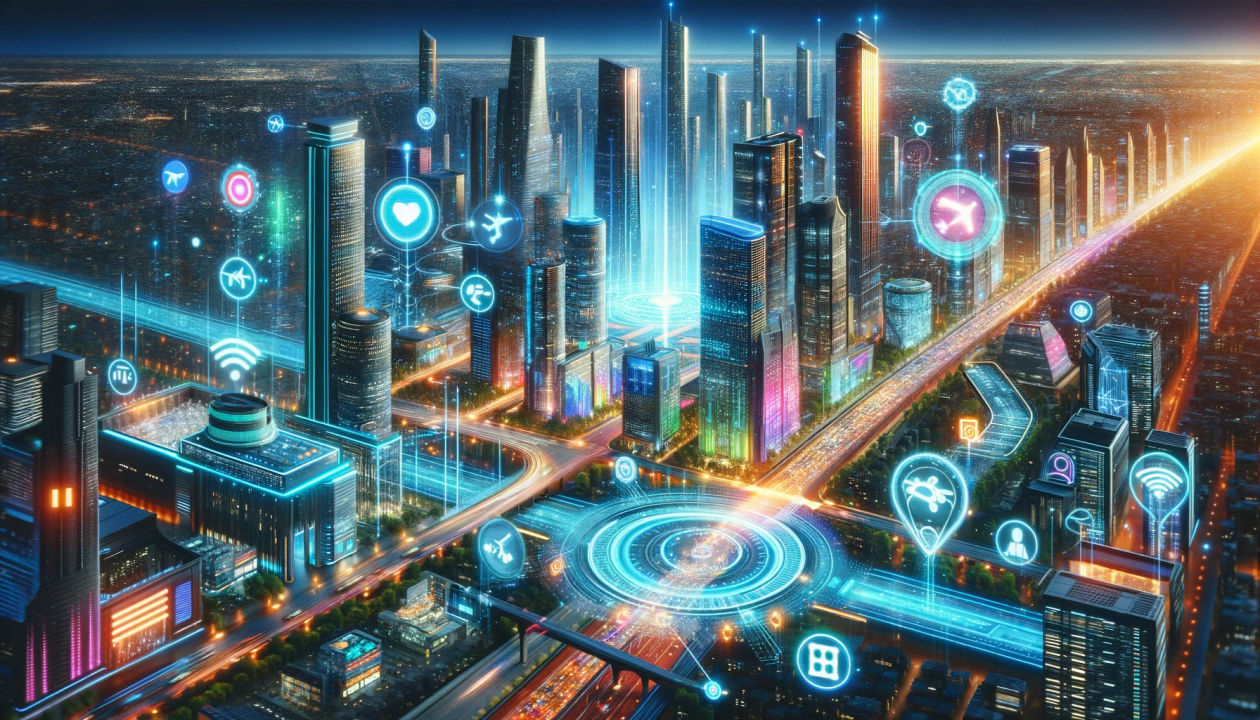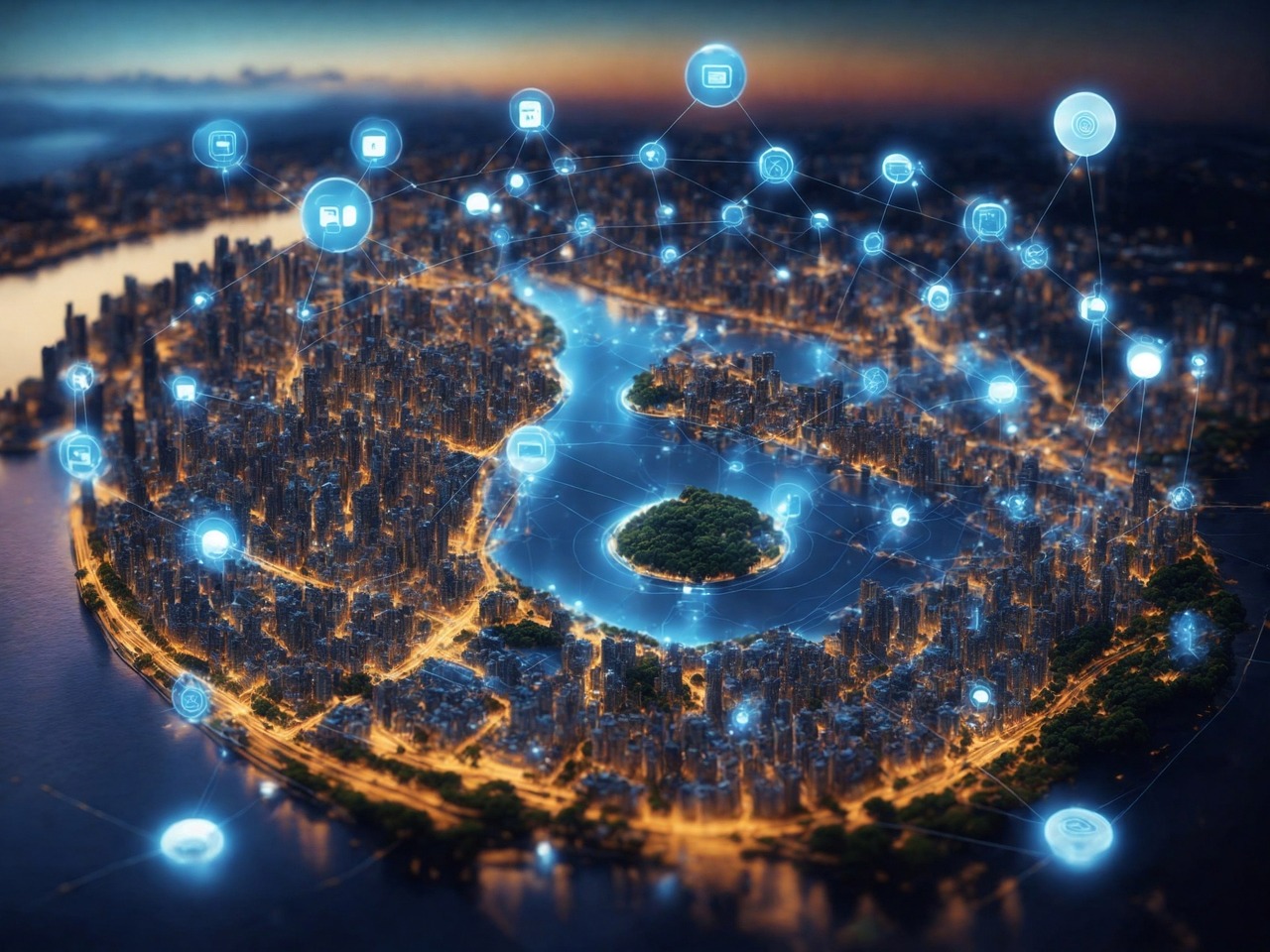
In the intricate tapestry of urban life, cities stand as the epicenters of human civilization, teeming with energy, diversity, and opportunity. Yet, beneath their bustling façades lie a labyrinth of challenges, ranging from burgeoning populations and deteriorating infrastructure to pressing environmental concerns and social inequalities. As our world hurtles towards unprecedented levels of urbanization, the imperative for cities to adapt, innovate, and evolve has never been more pressing. In this article, we delve into the transformative potential of generative urban AI—a cutting-edge technology poised to revolutionize how we plan, design, and manage our cities.
Unraveling the Urban Conundrum:
Cities today face a myriad of interconnected challenges that threaten their sustainability and resilience. Rapid population growth, urban sprawl, traffic congestion, pollution, inadequate housing, and strained public services are just a few of the pressing issues confronting urban centers worldwide. Decades-old approaches to urban planning, rooted in static, top-down methodologies, have proven inadequate in addressing the dynamic complexities of modern cities, often leading to inefficient resource allocation, spatial inequalities, and environmental degradation.
Enter Generative Urban AI:
Generative urban AI represents a paradigm shift in urban planning and design, offering a data-driven, iterative approach to city-building that is responsive, adaptive, and predictive. At its core, generative urban AI leverages advanced algorithms, machine learning, and big data analytics to simulate, model, and optimize various aspects of urban systems—from transportation and infrastructure to land use, energy consumption, and environmental performance. By harnessing vast troves of urban data, including demographic trends, mobility patterns, socioeconomic indicators, and environmental metrics, generative AI enables planners, policymakers, and designers to generate and evaluate an expansive array of design alternatives, scenarios, and interventions with unprecedented speed, accuracy, and granularity.
Urban AI Solutions: Pioneering Innovation:
At Urban AI Solutions, we are at the forefront of this urban revolution, developing cutting-edge technologies and solutions that harness the power of generative AI to address complex urban challenges. Our proprietary 5G in a box platform, coupled with AI-driven predictive analytics and decision support tools, empowers cities to optimize infrastructure investments, enhance service delivery, and foster inclusive, sustainable growth. From dynamic urban modeling and simulation to real-time traffic management and energy optimization, our suite of AI-enabled solutions offers cities a transformative toolkit for navigating the complexities of urban governance and planning in the 21st century.
From Concept to Concrete: Transforming Urban Dreams into Reality:
The transformative potential of generative urban AI extends far beyond theoretical abstraction, offering tangible benefits and outcomes that can shape the physical, social, and economic fabric of cities. Imagine a city where every street, building, and public space is meticulously tailored to meet the diverse needs and preferences of its inhabitants—a city where transportation networks flow seamlessly, energy systems operate efficiently, and green spaces flourish amidst the urban landscape. With generative AI, this vision becomes attainable, as planners and designers can explore, iterate, and optimize urban designs in virtual environments, rapidly translating ideas into actionable plans and projects that enhance livability, sustainability, and resilience.
Empowering Communities, Enhancing Engagement:
One of the defining features of generative urban AI is its potential to democratize the urban planning process, empowering communities and stakeholders to actively participate in shaping the future of their cities. By leveraging AI-powered visualization tools, interactive platforms, and participatory design methods, cities can engage citizens in meaningful dialogue, soliciting feedback, ideas, and insights that inform decision-making and foster social cohesion. From virtual town halls and crowd-sourced design competitions to collaborative mapping exercises and immersive VR experiences, generative AI opens new avenues for inclusive, transparent, and participatory urban governance that reflects the diverse needs, aspirations, and values of urban residents.
Global Leaders in Urban AI Adoption:
Cities around the world are increasingly embracing the potential of generative AI to address a wide range of urban challenges and opportunities. From Singapore’s Smart Nation initiative and Barcelona’s Superblocks project to Copenhagen’s Climate Plan and Toronto’s Quayside development, innovative urban AI initiatives are proliferating across diverse contexts, demonstrating the transformative impact of AI-driven technologies on urban governance, sustainability, and quality of life. By sharing best practices, lessons learned, and collaborative frameworks, cities can accelerate the adoption and diffusion of generative AI solutions, driving collective progress towards more equitable, resilient, and livable urban futures.
Challenges and Considerations:
While the promise of generative urban AI is immense, its implementation is not without challenges and considerations. Data privacy, security, and governance issues must be carefully addressed to ensure the ethical and responsible use of urban data and AI technologies. Moreover, the potential for algorithmic bias, discrimination, and unintended consequences necessitates robust safeguards, oversight mechanisms, and transparency measures to mitigate risks and safeguard public trust. As cities navigate the complexities of AI adoption, collaboration, partnership, and knowledge-sharing will be essential in fostering a culture of responsible innovation and inclusive urban development.
Conclusion:
Generative urban AI holds the promise of a more sustainable, inclusive, and resilient urban future, where cities are designed, managed, and experienced in ways that enhance human well-being, environmental quality, and social equity. By harnessing the transformative power of AI-driven technologies, cities can unlock new opportunities for innovation, collaboration, and collective action, driving positive change and progress in the urban landscape. As we navigate the complexities of urban governance and planning in the 21st century, let us embrace the potential of generative AI to shape cities that are smarter, greener, and more livable for all.

